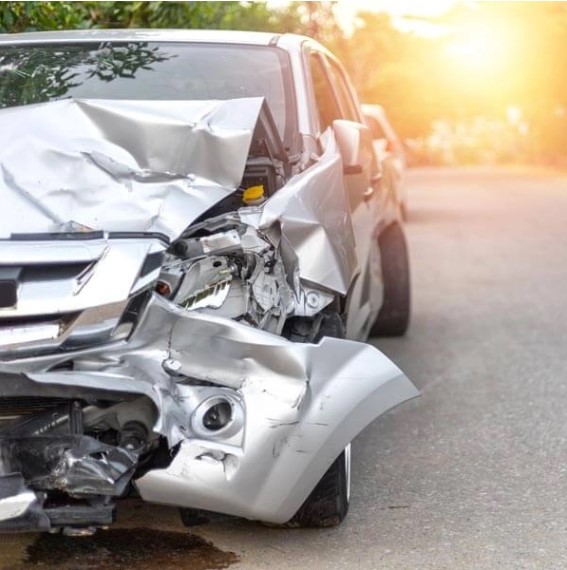Who Is Liable in a Texas Uber or Lyft Accident?
So now we know what negligence can look like, who might be liable for a rideshare accident in Texas?
Several parties can be at fault, including:
- The rideshare driver
- Another driver
- The rideshare company
- A third party.
Liability can be particularly tricky in this type of accident, which is where rideshare accidents differ from traditional car accidents.
Because Texas is a fault state, all drivers must carry liability insurance to cover the costs (damages) incurred by those injured — whether physical injuries, emotional injuries, or property damage.
In a “normal” crash, the responsible party’s insurance policy will typically cover your damages. However, in a rideshare accident, you may be able to recover your losses from the rideshare company.
Lyft and Uber Insurance Coverage
Uber and Lyft provide their drivers with liability coverage of up to $1 million. However, these rideshare companies will only honor claims in certain circumstances.
Uber and Lyft split a trip into four phases. Which period a driver is in determines how much insurance applies — if coverage is available at all.
Phase 0
When a driver is logged out of the ridesharing app, the company will not provide insurance coverage for an accident. Uber and Lyft’s policies only kick in when the driver is signed in to work — even if they have not yet accepted a fare (see Phase 1).
If you are hurt in an accident caused by a rideshare driver’s negligence and they are in Phase 0, you might still be able to claim against the driver’s personal auto insurance.
Phase 1
A rideshare driver is in Phase 1 when they are logged into the app but have not yet accepted a ride request. For example, they may have just logged in to start work or they might be between fares. In this scenario, Uber and Lyft will pay up to $50,000 per person, $100,000 per accident, and $25,000 for property damage.
If you are in a Lyft rideshare accident, this coverage takes effect when the driver’s personal liability insurance does not cover the accident. For example, if a passenger incurs $40,000 in losses and the rideshare driver’s auto insurance policy covers claims worth up to $30,000, Lyft will step in to cover the remaining $10,000.
Phases 2 and 3
Once a rideshare driver has accepted a ride request but they have not yet picked up the passenger, they are in Phase 2.
The trip moves into Phase 3 once the driver has picked up the customer.
In Phases 2 and 3, the full $1 million coverage applies. Rideshare drivers in these phases also benefit from underinsured and uninsured motorist coverage up to $1 million — which allows you to recover compensation if your Lyft or Uber is hit by an uninsured or underinsured driver — and contingent collision and contingent comprehensive coverage.
However, drivers must already have collision and comprehensive policies to benefit from Uber and Lyft’s coverage.
Uber provides a limit of the vehicle’s cash value or cost of repairs with a $1,000 deductible.
Lyft’s policies differ slightly, applying up to the cash value of the vehicle or the cost of repair with a $2,500 deductible.
The benefit of collision and comprehensive policies is that they step in regardless of fault, providing additional protection to rideshare drivers if they cause an accident or their vehicle is damaged by a fire, vandalism, or other non-collision event.
Once a driver has dropped off the customer at their destination, they revert to Phase 1 until they accept another fare (Phase 2) or log out of the app (Phase 0).
Therefore, if a rideshare driver is responsible for your accident, whether or not you can claim against their insurance — and how much they will pay out — depends on the personal auto insurance policies and coverage limits held by the driver and the stage of a trip they are in.
If you’ve been hurt in a rideshare accident caused by the driver, whether you were a passenger or driving your own vehicle, our Uber and Lyft accident attorney can determine if you have a claim and collect evidence to prove the driver’s ride status and negligence.
If Another Driver Is Responsible
If you’re a passenger in a rideshare vehicle and you’re hit by a negligent driver — for example, someone driving while distracted or speeding — you may be able to recover compensation by claiming on the at-fault driver’s insurance policy.
If a Third Party Is Responsible
Some accidents are the fault of a third party, such as when an auto defect causes a crash. Common scenarios include:
- You are a passenger in an Uber or Lyft when the car’s brakes fail, causing the driver to collide with another vehicle or hazard (for example, a pole or barrier).
- You are a passenger in a rideshare vehicle when another driver’s car suffers a tire blowout, resulting in them losing control and crashing into you.
- You are driving when a rideshare vehicle’s steering column malfunctions, causing them to collide with your car.
In these situations, you can file a claim against the manufacturer of the defective part. It’s vital to consult a Texas auto defect lawyer if you believe a fault caused your accident, as these claims rely on proving the company knew the fault existed and failed to rectify it, which can be challenging.




